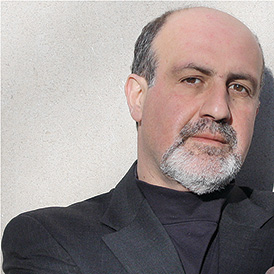Interview
“Antifragile due to crises”
An interview. Nassim Nicholas Taleb on anti-fragility and learning processes.

Nassim Nicholas Taleb, born in 1960 in Lebanon, worked as a derivatives trader on Wall Street before causing a furore as a writer. His latest book, “Antifragile”, is a logical continuation of his bestseller “The Black Swan”. He was the introductory speaker at a VIG conference in January 2015.
After “black swan”, you have now coined a new term, “antifragility”.
For my latest book, I was looking for a word that expressed the opposite of “fragility”. It is believed that it is sufficient to make what is fragile more robust when dealing with risk. But the opposite of fragility is only reached when a shock not only fails to destroy something, but instead makes it stronger. If you drop a plastic cup, it does not break – it is robust and remains unchanged. If you cut a leaf from a plant, two leaves grow back. It is antifragile and grows because it actually deals positively with a shock.
Does that mean the economy needs shocks to grow?
Yes, but it is not just a question of growth. In a highly stable situation, companies feel no pressure to improve themselves. We therefore need more chaos, volatility and crises in order to become better in the sense of antifragility. In aviation, the probability of a plane crash is reduced with every crash, because we learn from the errors.
Is that also the case with the economy?
If we take the banking system as an example, no. It is still fragile, even after many years of crisis. If a bank fails, there is a high probability that others will follow it – because few lessons have been learned from the errors of the past.
What do you advise companies to do?
They should not try to make what is fragile more robust, but should instead separate themselves from it. They should become friends with volatility and not try to forecast or prevent it. Dealing properly with uncertainty makes companies stronger – and even antifragile, if they learn from errors. That is easier to achieve in a decentralised organisation that has small units but common rules. That is undoubtedly the reason VIG follows these principles.
